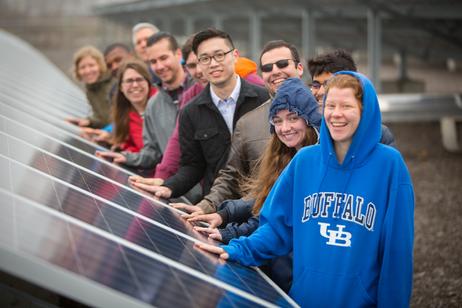As the demand for environmentally valuable technologies is rising, community colleges across the country are implementing programs to provide students with the skills and knowledge to compete in the future "green collar" job force.
According to The Times Herald-Record, a "green collar" job is a job that "has been upgraded to address the environmental changes of our country." Generated by the need for energy efficiency, careers in fields of energy auditors, weatherization workers, solar electric and water installers, and insulation installers, are all jobs that are projected to be in high demand.
Since the demand is already on the rise, there is already a need for millions of "green collar" workers, and the training demands are immediate. Acknowledging this increasing demand, community colleges are implementing revolutionary programs to prepare students for careers as "green collar" workers in fields of renewable energy. With competitive pay and incredible demand, students are eager to join programs that will lead to sustainable and valuable careers after college.
Community Colleges Gaining Newsworthy Recognition
While community colleges across the country are implementing renewable and green collar programs, Cape Fear Community College, Cape Cod Community College, and Columbia George Community College are just three of the many institutions that have gained media attention for their newsworthy programs and course offerings.
In Wilmington North Carolina, Cape Fear Community College's Engineering Department has developed a renewable energy lab. Focusing on the research and use of hydrogen fuel cells,




















